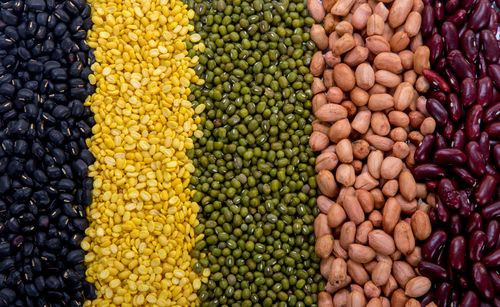Vegans Eat Carbs And Still Lose The Weight: Why You Should Give The Diet A Shot

Carbohydrates have somehow become the enemy in our overweight country, but a new study finds maybe it’s the meat we should’ve been avoiding all along. Researchers from the University of South Carolina tracked how much weight people lost on five different types of diets and found the biggest losers (or winners) were the vegans.
“We’ve gotten somewhat carb-phobic here in the U.S. when it comes to weight loss,” the study’s lead author, Gabrielle Turner-McGrievy, from the Arnold School of Public Health at USC, said in a press release, adding she’s well aware a vegan diet isn’t right for everyone. “This study might help alleviate the fears of people who enjoy pasta, rice, and other grains but want to lose weight.”
For the study, published in The International Journal of Applied and Basic Nutritional Sciences, researchers randomly assigned one of five diets to their participants to follow over a period of six months. Everyone in the study attended group sessions with Turner-McGrievy, where they were supplemented with education and healthy snacks.
They compared vegan dieters to omnivores who could eat anything and semi-vegetarians who allowed meat periodically. Those who didn’t eat any meat included pesco-vegetarians who excluded all meat but seafood, and vegetarians who banned meat but still ate animal products. Vegans are vegetarians who take it to the next level and do not use any animal or animal by-products, such as eggs, dairy products, or honey. People choose the vegan lifestyle for a variety of reasons, whether it’s for their health, environmental morals, or ethics.
Compared to participants who included fish, red meat, or animal products in their diets, vegans lost an average of 16.5 more pounds. Vegans were also able to lose 4.3 percent more of their body weight than everyone else, even though their daily meals were high in carbohydrates. Vegan diets proved to be by far the best for weight loss. Participants did not know which diet structure they were assigned until the end of the study. When researchers told the participants in the study which group they were in, “you could have heard a pin drop in the vegan group,” Turner-McGrievy said.
Not only did vegans beat out the other four diet types, but they also greatly decreased the amount of sat and saturated fats in their diet, had lower BMIs, and a better overall balance of macronutrients (carbohydrates, fats, and proteins). Turner-McGrievy said she wasn’t surprised when the vegan diet resulted in the greatest weight loss. However, she was surprised that pesco-vegetarians didn’t do significantly better than meat eaters and semi-vegetarians. Fish is higher in protein and lower in fat, which means the body processes it into muscle instead of storing it.
Meats vs. Carbohydrates
Nutrition is laced with controversy, and trying to decide between diets can be overwhelming. The success of the Meatless Monday campaign is a testament to how people can incorporate moderation into their weight loss goals with ease. By just removing meat or animal products at the beginning of every week, dieters give their digestive system a break. It takes about six to eight hours to digest, but a piece of meat will take between 24 to 72 hours to process through your body, according to LiveStrong.
There’s no denying protein is a healthy part of anyone’s diet and can even aid in the weight loss process. But the key here is balance, and vegetarians and vegans trump omnivores when it comes to total fat, saturated fat, and cholesterol measurements. Plant proteins can provide enough essential and non-essential amino acids the body needs, so long as enough calories are being ingested.
Carbohydrates are a completely different story. Whole grains are full of fiber and easier for the body to digest than meat in general. But that’s not the case for all the refined grains we find in our diets today. Whole grain carbohydrates are more filling, nutritious, and sustaining than their refined counterparts. Don't upset the balance though. If a vegan ate a majority of plain pasta and white bread without the veggies, they wouldn't lose weight as healthily as a lean protein dieter would. Balancing caloric intake is key to weight loss, but there are healthy and unhealthy ways to shed pounds.
Source: Turner-McGrievy GM, Davidson CR, Wingarg EE, Wilcox S, and Frongillo EA. Comparative effectiveness of plant-based diets for weight loss: A randomized controlled trial of five different diets. The International Journal of Applied and Basic Nutritional Sciences. 2014.



























